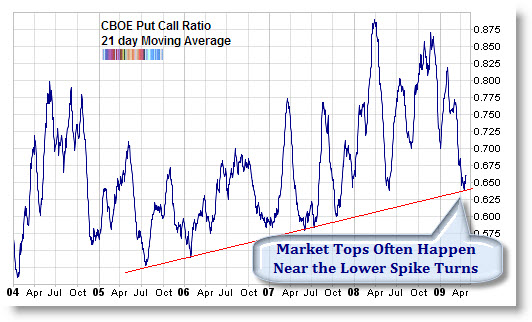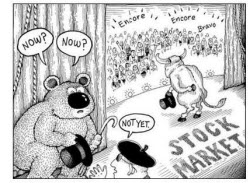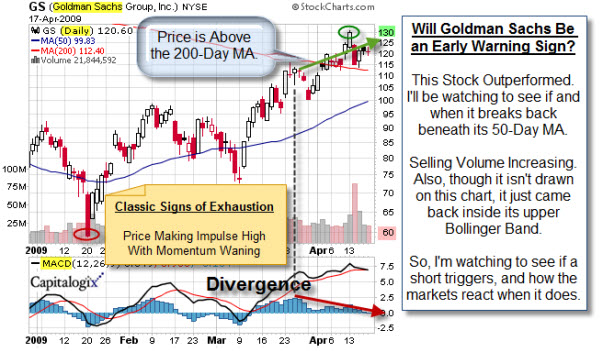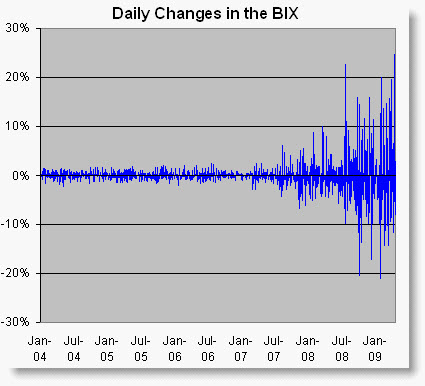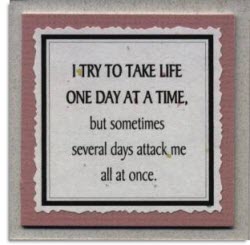How much is a Trillion? If you were paid a dollar per second, it would take you 31,709 years to earn a Trillion dollars.
If you are more graphic,
this link will show you how much it is in more detail.
To put things in perspective, now think about Bailout … or that the IMF released its Global Financial Stability Report this week; and it's projecting total losses from the global financial crisis to reach $4.1 Trillion.
This Week's Market Charts.
The Markets held up nicely after a sell-off early last week. Technology is still leading and the Dow has been lagging a little. Other things nagging at me about the rally is that momentum is fading and volume hasn't been great. Here is a chart showing how the Dow is positioned at key support and resistance levels.
Trader's Narrative had a chart that caught my eye. It shows that the short term moving average of the CBOE (equity only) Put-Call ratio is still quite low, corresponding to market tops. Adjusting for the upward sloping range of the data we find it at a similar level to October 2007.
Business Posts Moving the Markets that I Found Interesting This Week:
- Microsoft Disappoints A day after Apple Didn't. (BW)
- Amazon Net Jumps 24%, Resisting Recession (WSJ)
- Hope, Greed and Fear: The Psychology Behind the Financial Crisis (Wharton)
- An interactive map of vanishing employment across the country.(Slate)
- Second Market: A New Form of Public Offering Is Emerging (A VC)
- More Posts Moving the Markets.
Lighter Ideas and Fun Links that I Found Interesting This Week
- Are You Being Tracked Via Your Cell Phone? (MediaPost)
- Apple Reaches 1 Billion iPhone Apps Downloaded. (TechChuck)
- Who Is Defending Cyberspace, And Are They Doing A Good Job? (USNews)
- How To Spot Technology Trends With Job Postings. (SmallBizTrends)
- Children Surprisingly Willing To Treat Robot Dogs As 'Dog-Like'. (BPS Research)
- More Posts with Lighter Ideas and Fun Links.




